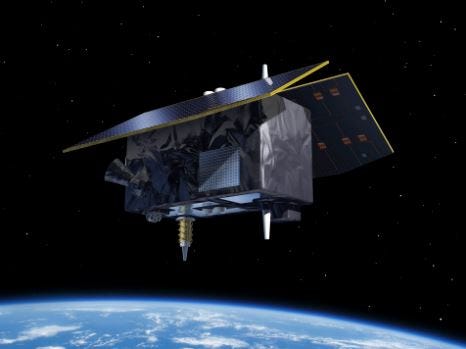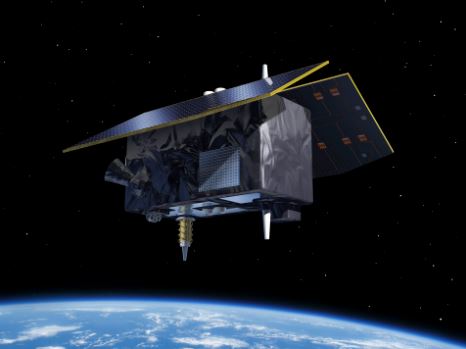ESA’s FutureNAV program includes Genesis and LEO-PNT
The European Space Agency this week awarded $253 million for three contracts that fund two satellite navigation missions. The navigation missions, Genesis and LEO-PNT, are part of ESA’s FutureNAV program.
“With Genesis and LEO-PNT we are responding to rapidly growing needs for more resilient and precise navigation and ensuring Europe leads global satellite navigation, the largest downstream space market,” said Javier Benedicto, ESA director of navigation, in a statement.
The 76.6 million euro contract for Genesis, developed by a 14-company consortium led by OHB Italia and scheduled to launch in 2028, will contribute to an International Terrestrial Reference Frame (ITRF) with an accuracy of 1 millimeter. An updated ITRF impacts satellite-based systems, such as Galileo satellites, ESA said.

The other two contracts, both for 78.4 million euros, went to GMV Aerospace and Defence and OHB System and Thales Alenia Space for LEO PNT, expected to be in orbit by 2027. The contracts call for the design and development of satellites and payloads, ground segment, test user segment and satellite launches, operations, experimentation and demonstration of services with end users, ESA said.
For its part, Thales Alenia Space will deliver space, ground and user segments for the LEO-PNT orbit demonstrator. This includes five satellites that will be launched.
The contract also calls for in-orbit operations that include deorbiting, the launch itself, test user segment and experimentation and service demonstration with several industries and different user environments, the company said.
The constellation will work with Galileo and other satellite navigation to provide “guaranteed centimeter location accuracy, robustness, resistance against jamming and spoofing as well as low-latency, the company said. The LEO-PNT orbit demonstrator will allow increased accuracy and other features to such emerging applications as autonomous vehicles, uncrewed aerial and maritime vehicles and 56/6G ground telecom network synchronization, the company said.
“Adding a LEO-PNT constellation layer to the Galileo GNSS, combined with improved user receivers, will unlock new applications and economic growth while bringing essential environment benefits reducing CO2 emissions through fuel saving and a more efficient energy network,” said Hervé Derrey, Thales Elenia Space CEO.
It’s Official: SpaceX To Launch Four Galileo Satellites
In related ESA news, the European Union and the United States have reached a security agreement that allows the launch of four Galileo navigation satellites onboard SpaceX’s Falcon 9 rocket, according to Politico. The EU has agreed to pay 180 million euro for two launches, which have military and civilian payloads—hence the security.
It’s been a tough road for Galileo as Europe ended its relationships with Russia, which was to launch its satellites, when it invaded Ukraine in February 2022. Another option, the Ariane 5, was retired—and the Ariane 6 has been delayed.




























